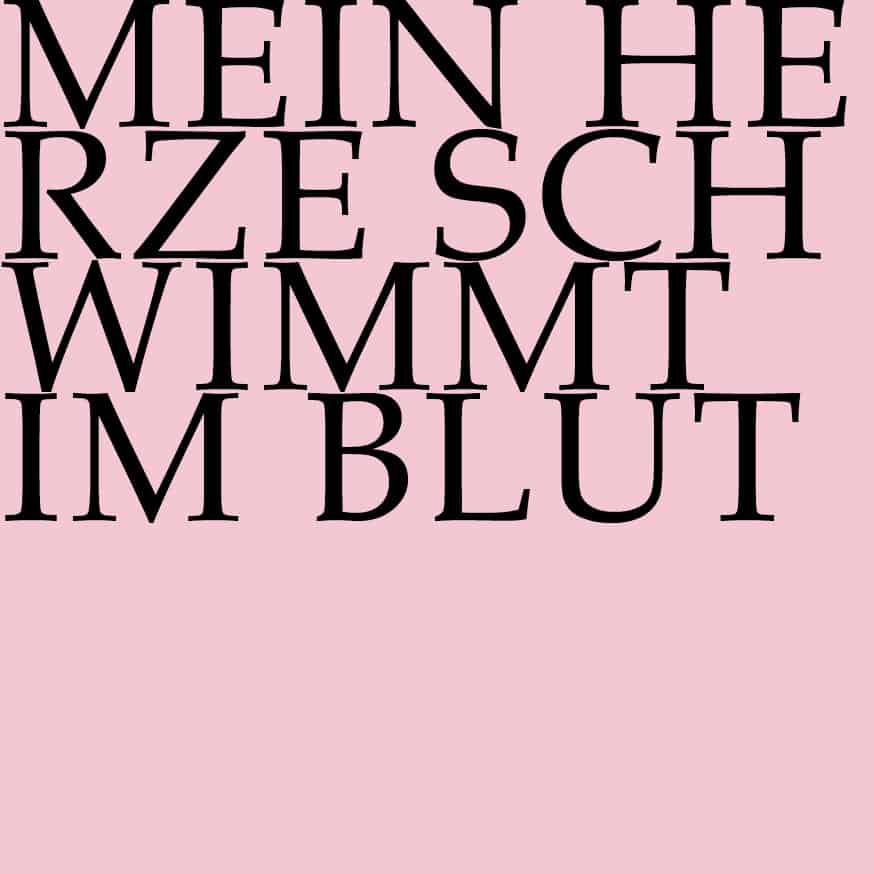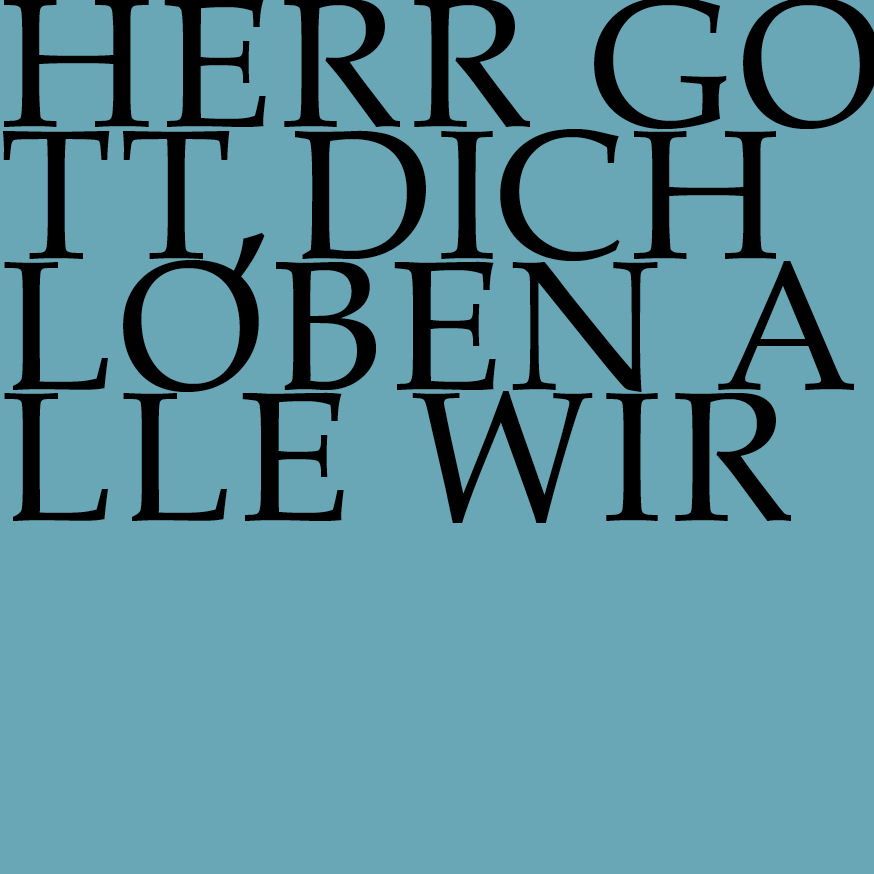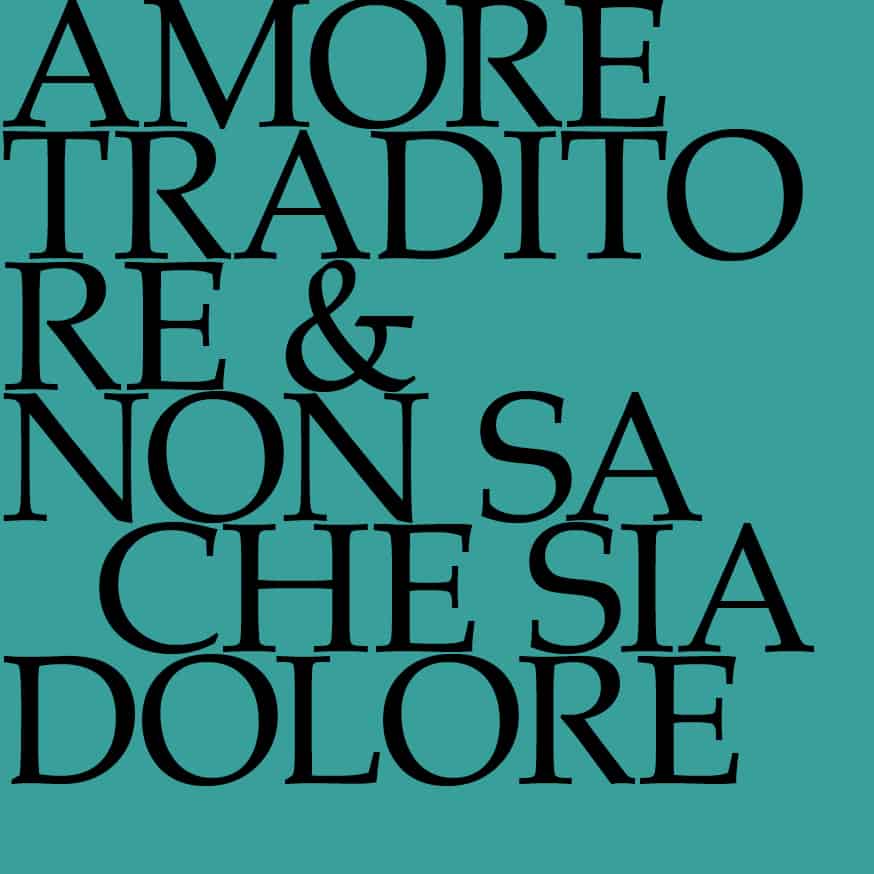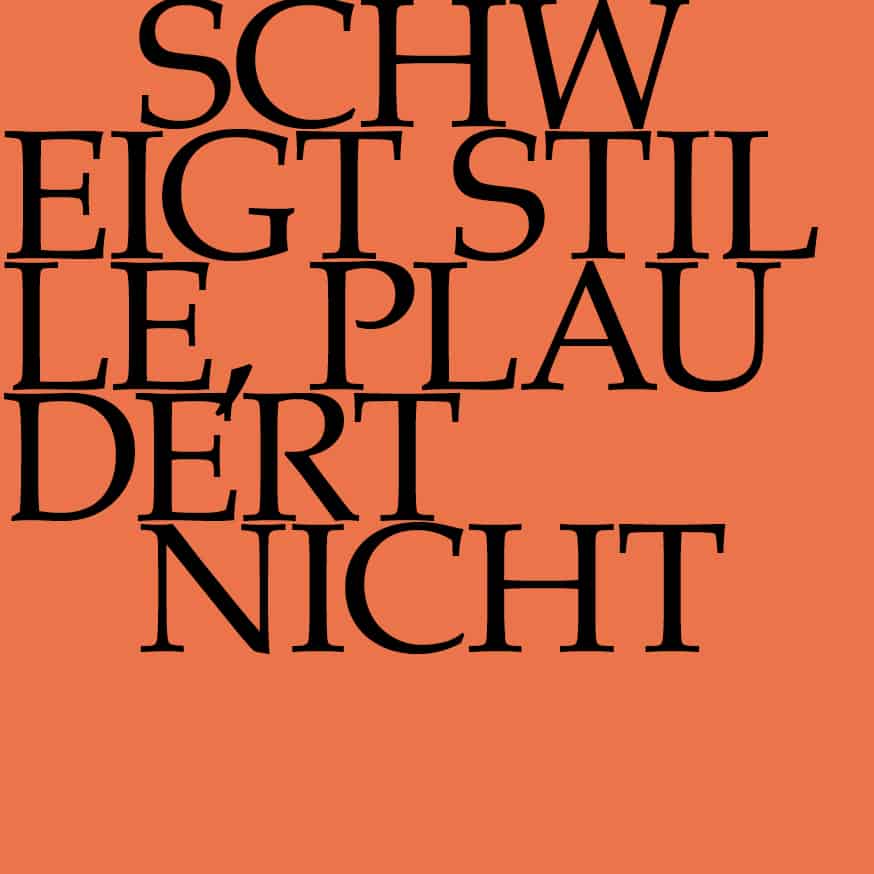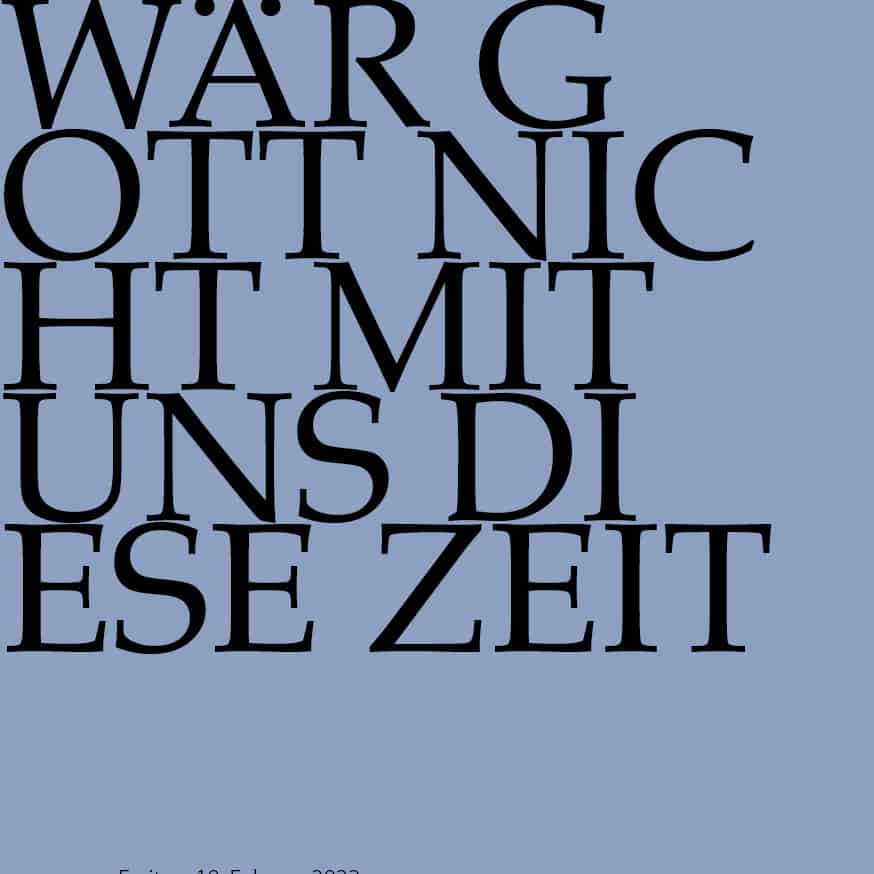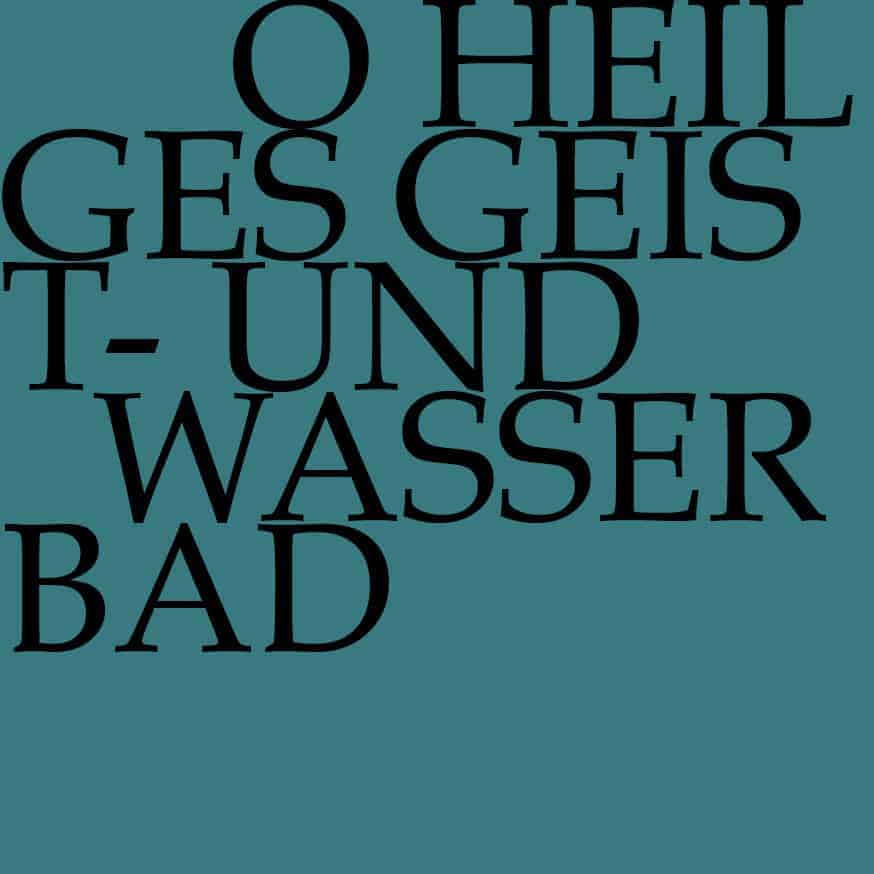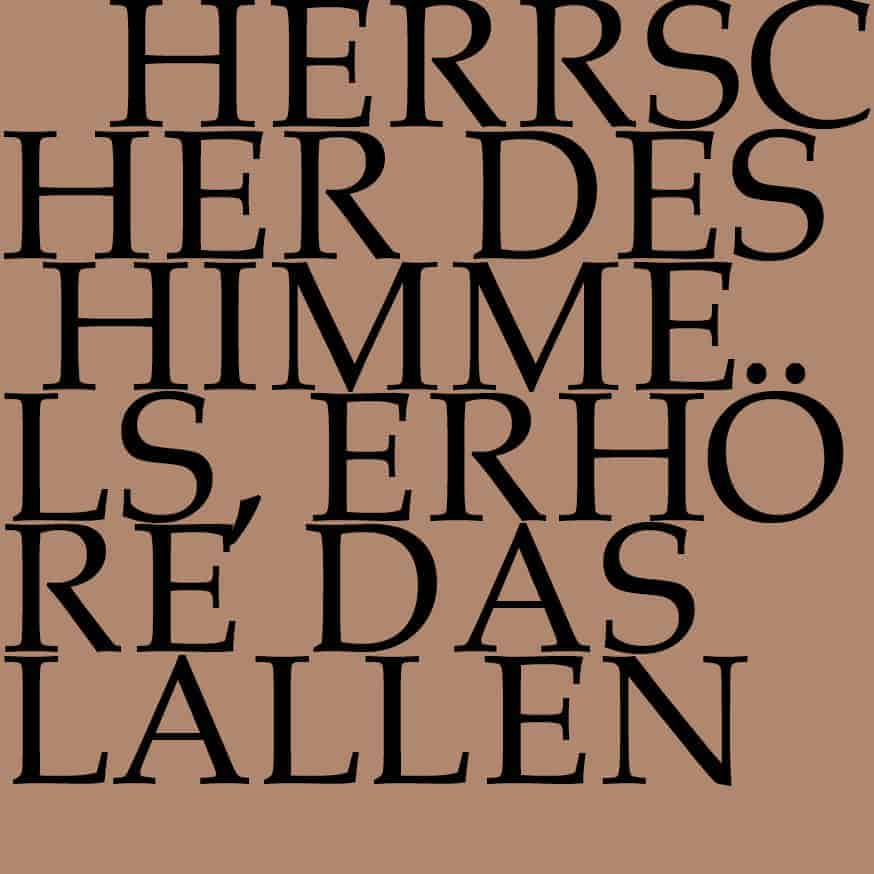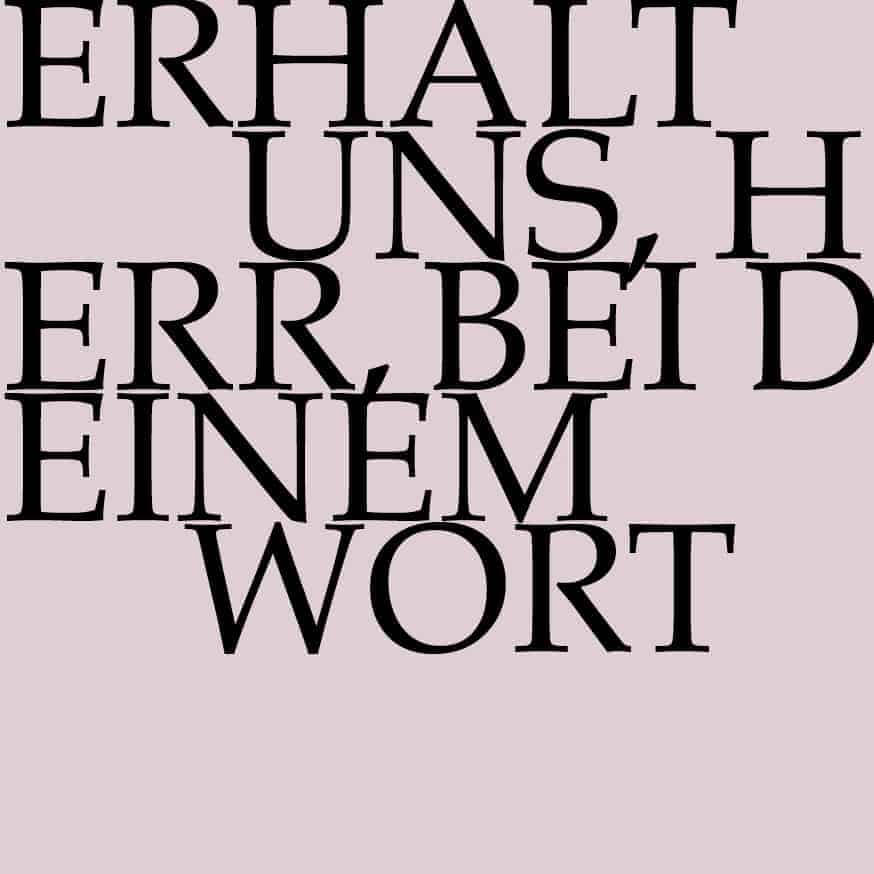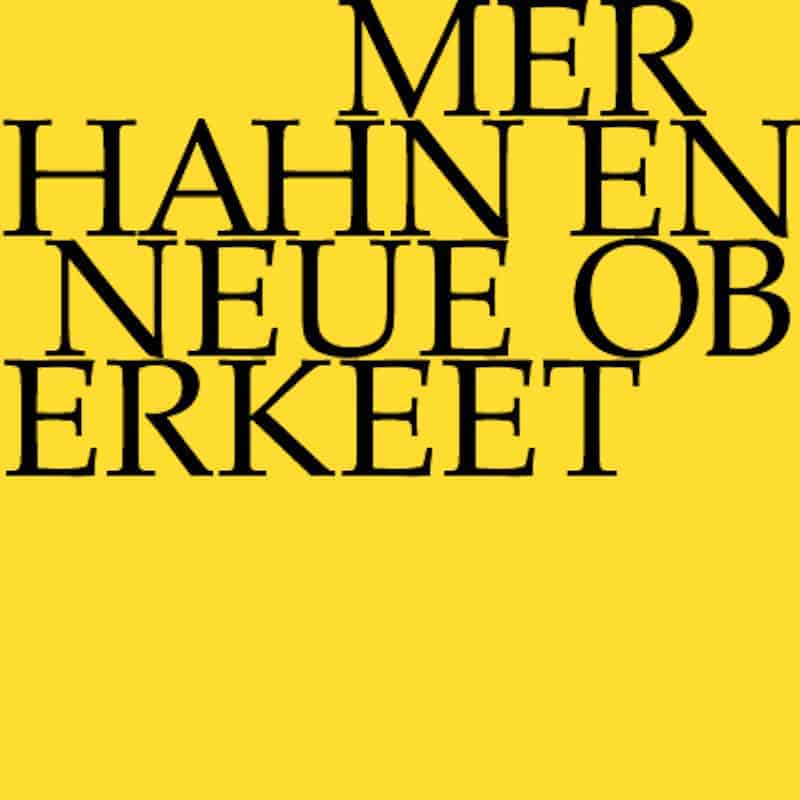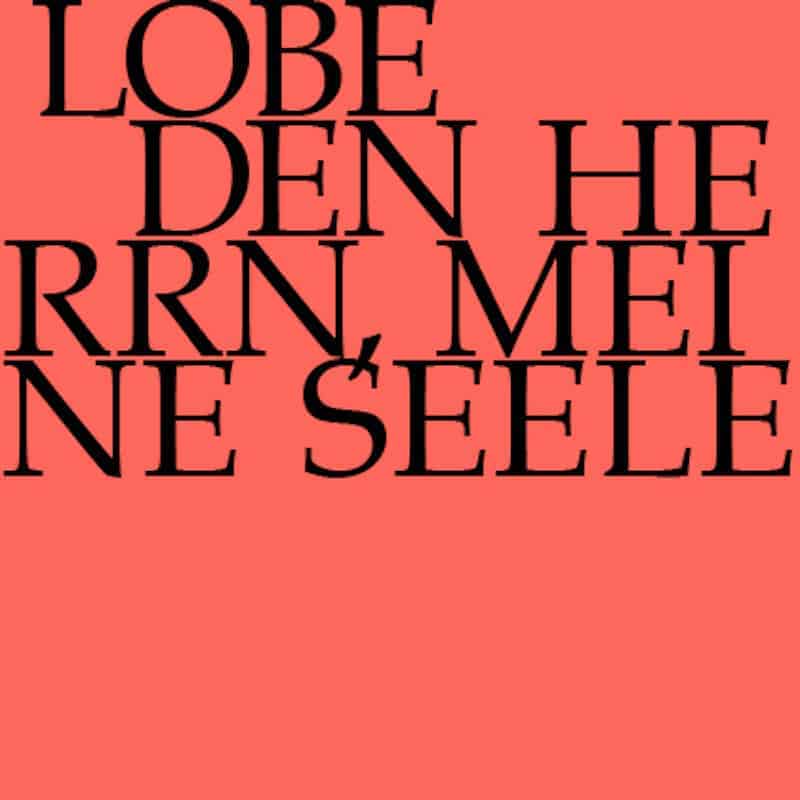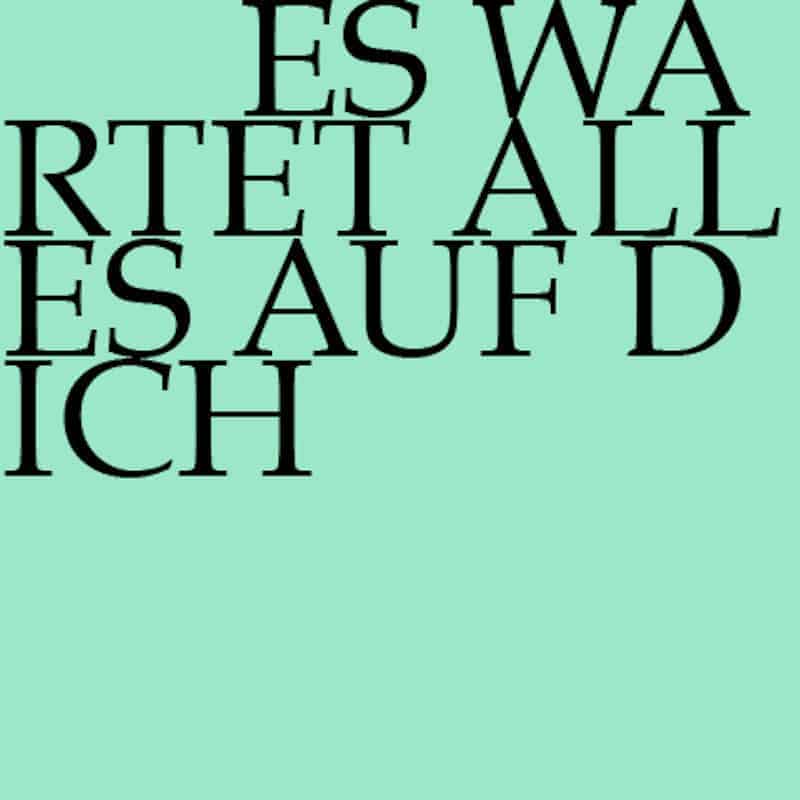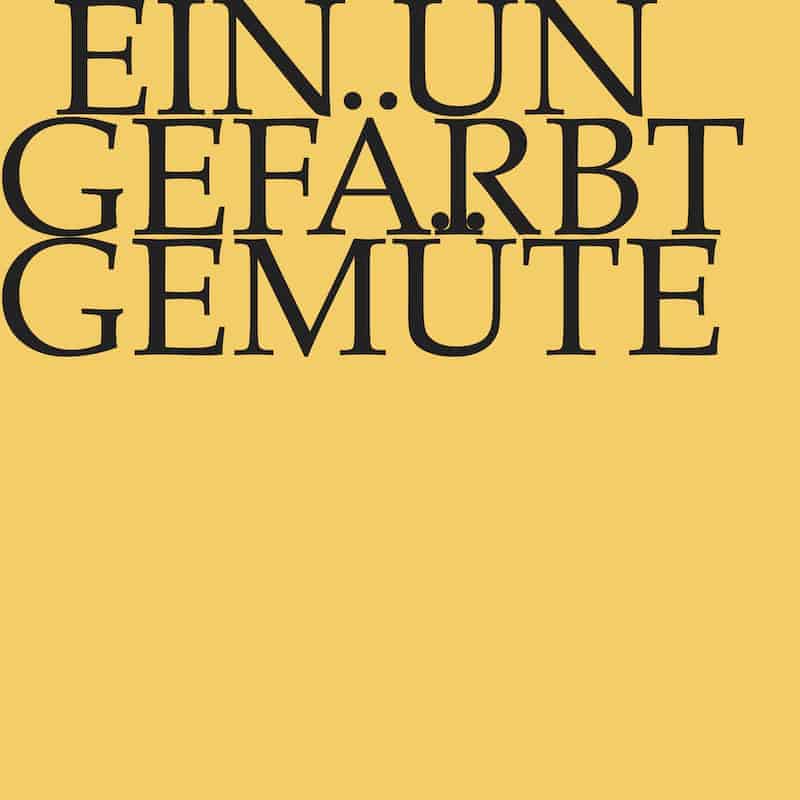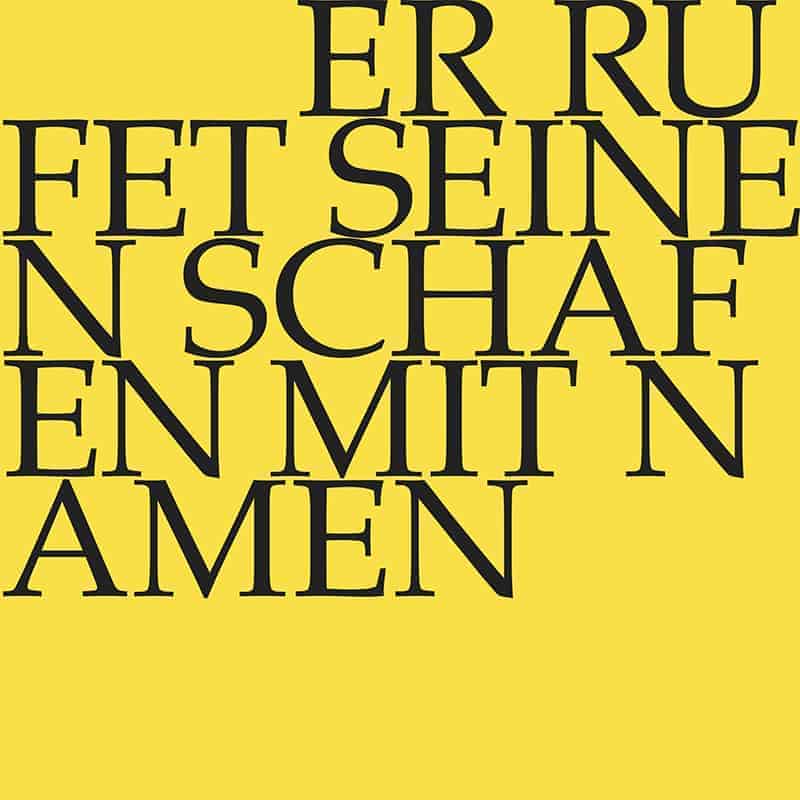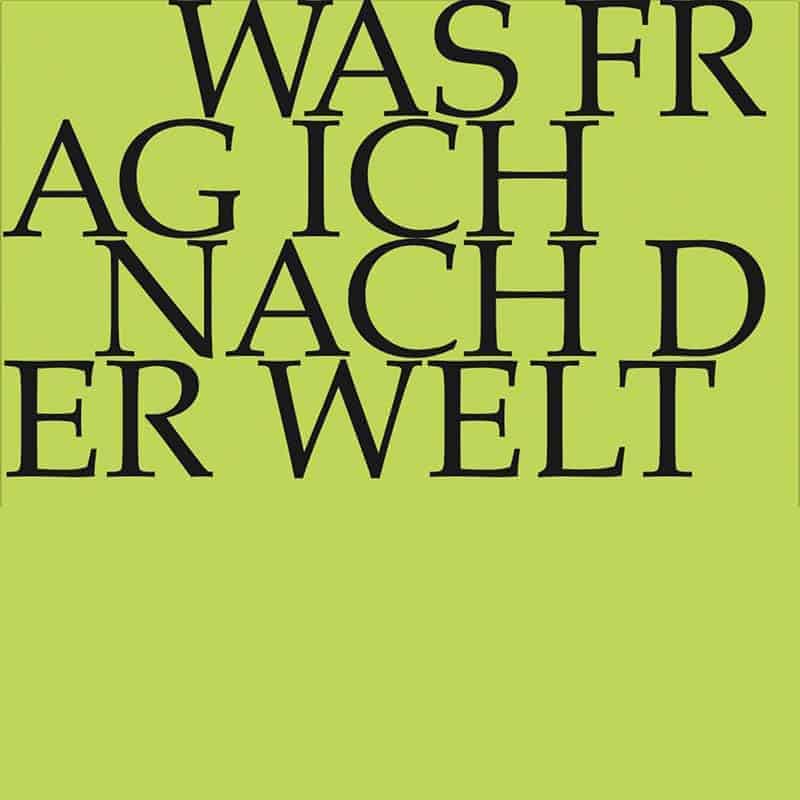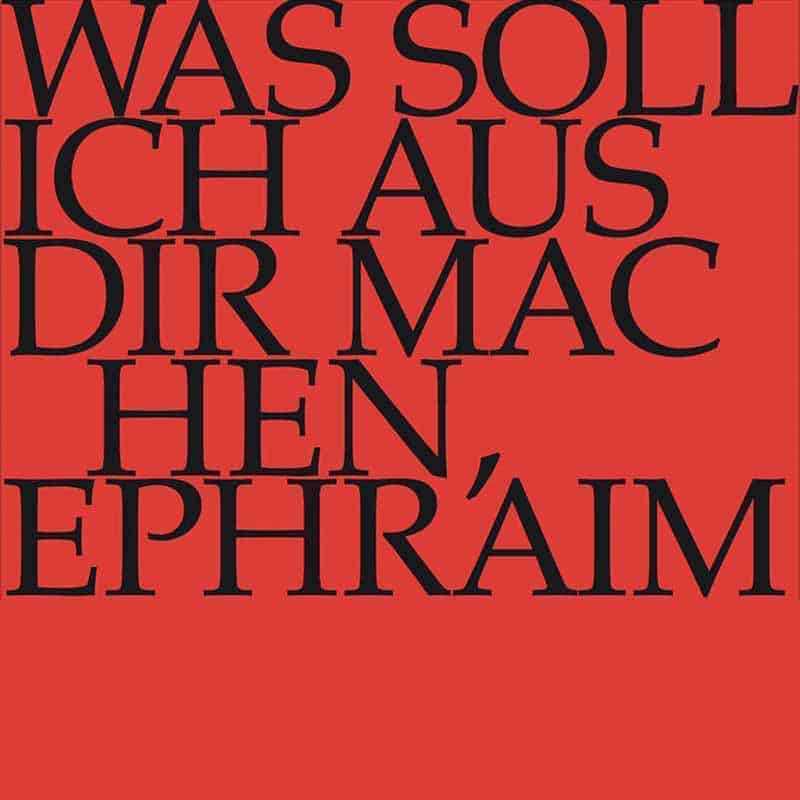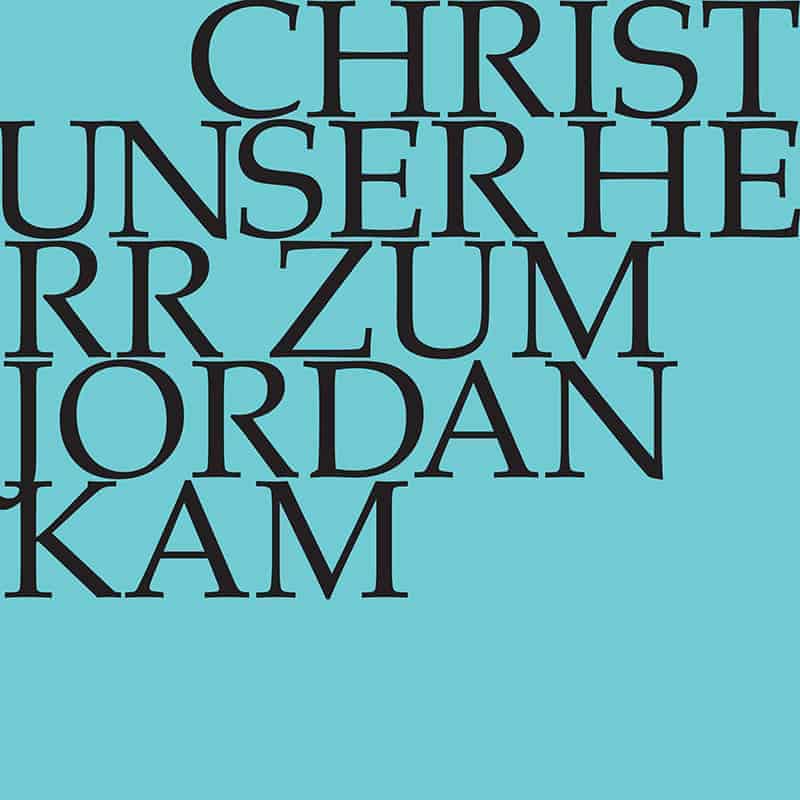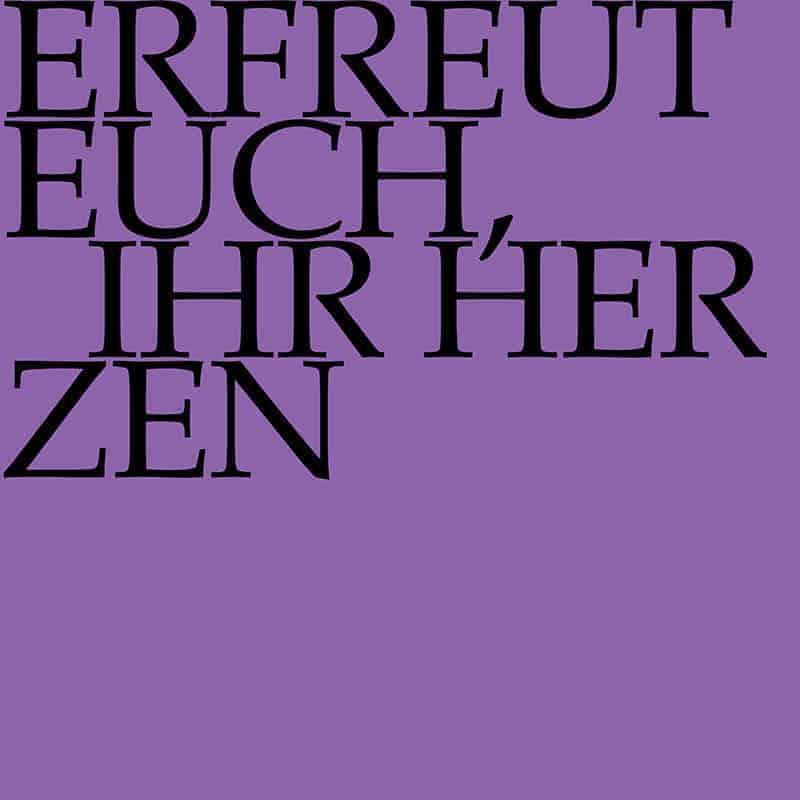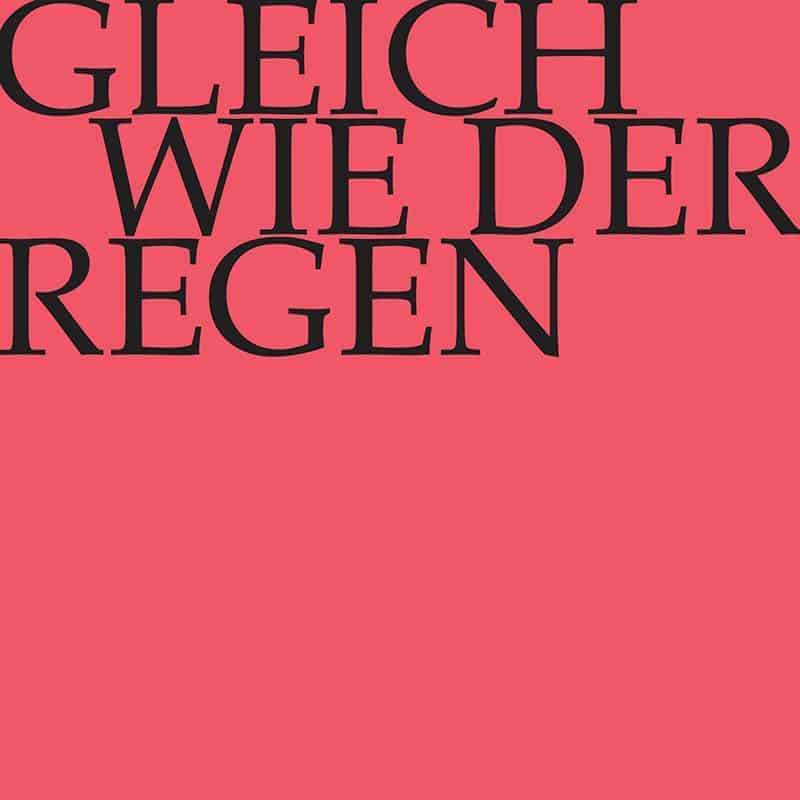(My heart doth swim in blood) for soprano, oboe, strings and basso continuo
Archives
Herr Gott, dich loben alle wir
(Lord God, we praise thee every one) for soprano, alto, tenor and bass, vocal ensemble, trumpets I–III, timpani, transverse flute, oboe I–III, strings and basso continuo
Amore traditore
For bass and basso continuo
Schweigt stille, plaudert nicht
(Be quiet, chatter not) Coffee Cantata, for soprano (Lieschen), tenor (narrator), and bass (Schlendrian), transverse flute, strings and basso continuo
Wär Gott nicht mit uns diese Zeit
(Were God not with us all this time) for soprano, tenor and bass, vocal ensemble, corno, oboe I+II, strings and basso continuo
O heilges Geist- und Wasserbad
(O Holy Spirit’s water bath) for Trinity (First Sunday after Pentecost), for soprano, alto, tenor and bass; strings and basso continuo
Herrscher des Himmels, erhöre das Lallen
(Ruler of heaven, give ear to our stammer) for soprano, alto, tenor and bass, vocal ensemble, transverse flute I+II, oboe I+II, trumpets I-III, timpani, strings and basso continuo
Erhalt uns, Herr, bei deinem Wort
(Maintain us, Lord, within thy word) for Sexagesima Sunday, for alto, tenor and bass, vocal ensemble, oboe I+II, trumpets, strings and basso continuo
Mer hahn en neue Oberkeet
(We’ve got a bran-new guvernor) for soprano and bass, transverse flute, corno, strings and basso continuo
Lobe den Herrn, meine Seele
(Praise thou the Lord, O my spirit) for soprano, alto, tenor and bass, vocal ensemble, flauto, oboe d’amore, oboe I-III, trumpet I-III, timpani, strings and basso continuo
Es wartet alles auf dich
(Here look now all men to thee) for soprano, alto and bass, vocal ensemble, oboe I+II, strings and basso continuo Inspired by the cantatas of Bach’s cousin Johann Ludwig, BWV 187 is a two-part composition based on a Bible verse from the Old and New Testaments, respectively. Its form is typical for Bach’s third cantata … Read More
Ein ungefärbt Gemüte
(An undisguised intention) for alto, tenor and bass, vocal ensemble, oboe I+II, oboe díamore I+II, trumpet, strings and basso contiuno Although cantata BWV 24, “An undisguised intention”, was first performed on 20 June 1723 in Leipzig, it is related in tone to Bach’s Weimar cantatas, perhaps to provide stylistic unity with cantata BWV 185, “O … Read More
Er rufet seinen Schafen mit Namen
(He calleth his own sheep by name) for alto, tenor and bass, vocal ensemble, flauto dolce I-III, tromba I+II, violoncello piccolo, strings and basso continuo Composed for the Third Day of Pentecost in 1725, the cantata “Er rufet seinen Schafen mit Namen” (He calleth his own sheep by name) belongs to a cycle of works … Read More
Was frag ich nach der Welt
(What need I of this world) for soprano, alto, tenor and bass, vocal ensemble, transverse flute, oboe I+II, bassoon, strings and basso continuo It would be a disservice to the cantata “Was frag ich nach der Welt” (What need I of this world), composed for the Ninth Sunday after Trinity in 1724, were we to … Read More
Halt im Gedächtnis Jesum Christ
(Hold in remembrance Jesus Christ) for alto, tenor and bass, vocal ensemble, corno da tirarsi, transverse flute, oboe d’ amore I+II, bassoon, strings and basso continuo The introductory chorus to cantata BWV 67 opens with a heroic horn figure and a triadic, fanfare-like theme that underscores the proximity of Quasimodogeniti Sunday to the Easter events … Read More
Was soll ich aus dir machen, Ephraim
(What shall I make of thee now, Ephraim?) for soprano, tenor and bass, corno da caccia, oboe I+II, bassoon, strings, organ and continuo
Christ unser Herr zum Jordan kam
(Christ did our Lord to Jordan come) for alto, tenor and bass, vocal ensemble, oboe d‘amore I+II, bassoon, strings and continuo According to Lutheran doctrine, baptism – in addition to communion and penance – belongs to the three sacraments introduced by Jesus and thus to the sacred rites practised by Lutherans after the Reformation. For … Read More
Erfreut euch, ihr Herzen
(Rejoice, all ye spirits) for alto, tenor and bass, vocal ensemble, trumpet, oboe I+II, bassoon, strings and continuo Written in Leipzig, Bach’s Easter cantata BWV 66 (preserved in its 1731 version) is a sacred parody based on a Cöthen serenade of 1718. Bach opens the work by taking the spectacular closing movement of the original … Read More
Gleich wie der Regen
(Just as the showers) for soprano, tenor and bass, vocal ensemble, recorder I+II, bassoon, viola I-IV and continuo. The cantata “Gleich wie der Regen und Schnee vom Himmel fällt” (Just as the showers and snow from heaven fall) is undoubtedly unique in Bach’s oeuvre. While its libretto and form are distinctive in themselves – with … Read More


